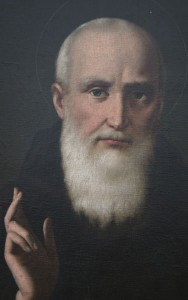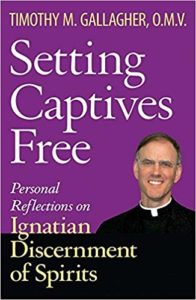Podcast: Play in new window | Download (Duration: 28:35 — 19.7MB) | Embed
Subscribe: Apple Podcasts | Spotify | Amazon Music | Android | Pandora | iHeartRadio | JioSaavn | Podchaser | Gaana | Podcast Index | Email | TuneIn | Deezer | Anghami | RSS | More

Msgr. Esseff reflects on the Anointing of the Sick, known as one of the Sacraments of Healing. He speaks of his personal experience with the sacrament and the importance of having it readily available for the faithful. Msgr. Esseff also addresses particular issues related to laying on of hands.
Jesus came to heal the whole person, body and soul.
In the Church’s Sacrament of Anointing of the Sick, through the ministry of the priest, it is Jesus who touches the sick to heal them from sin – and sometimes even from physical ailment. His cures were signs of the arrival of the Kingdom of God. The core message of his healing tells us of his plan to conquer sin and death by his dying and rising.
The Rite of Anointing tells us there is no need to wait until a person is at the point of death to receive the Sacrament. A careful judgment about the serious nature of the illness is sufficient.
When the Sacrament of Anointing of the Sick is given, the hoped-for effect is that, if it be God’s will, the person be physically healed of illness. But even if there is no physical healing, the primary effect of the Sacrament is a spiritual healing by which the sick person receives the Holy Spirit’s gift of peace and courage to deal with the difficulties that accompany serious illness or the frailty of old age.
~from the United States Catholic Catechism for Adults | en español
Pray
Learn
- Explore the USCCA to learn about the liturgy for the Anointing of the Sickand its effects within the community and the life of the sick. | en español
- Respecting the Dignity of the Human Person at the End of Life
Act
-
Anointing of the Sick: Joined to Christ, Witnesses of Hope and Healing| en español
-
The Corporal Works of Mercy include visiting the sick and burying the dead.
-
The Spiritual Works of Mercy include praying for the living and the dead.
Scripture: Mark 1:40-45
40 And a leper came to him begging him, and kneeling said to him, “If you will, you can make me clean.” 41 Moved with pity, he stretched out his hand and touched him, and said to him, “I will; be clean.” 42 And immediately the leprosy left him, and he was made clean. 43 And he sternly charged him, and sent him away at once, 44 and said to him, “See that you say nothing to any one; but go, show yourself to the priest, and offer for your cleansing what Moses commanded, for a proof to the people.” 45 But he went out and began to talk freely about it, and to spread the news, so that Jesus could no longer openly enter a town, but was out in the country; and people came to him from every quarter.

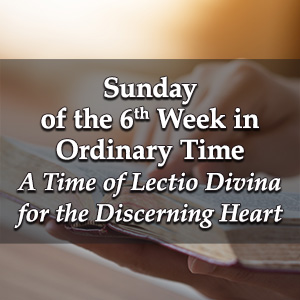 Sunday of the Sixth Week in Ordinary Time – A Time of Lectio Divina for the Discerning Heart Podcast
Sunday of the Sixth Week in Ordinary Time – A Time of Lectio Divina for the Discerning Heart Podcast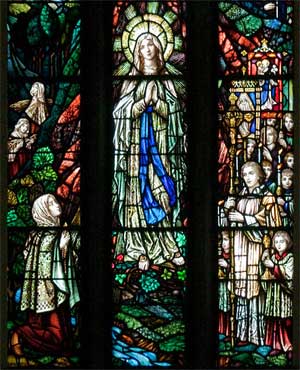 O glorious Mother of God, to you we raise our hearts and hands to implore your powerful intercession in obtaining from the benign Heart of Jesus all the graces necessary for our spiritual and temporal welfare, particularly for the grace of a happy death. O Mother of our Divine Lord, as we conclude this novena for the special favor we seek at this time.
O glorious Mother of God, to you we raise our hearts and hands to implore your powerful intercession in obtaining from the benign Heart of Jesus all the graces necessary for our spiritual and temporal welfare, particularly for the grace of a happy death. O Mother of our Divine Lord, as we conclude this novena for the special favor we seek at this time.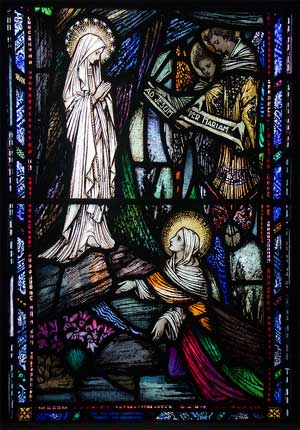 O Immaculate Mother of God, from heaven itself you came to appear to the little Bernadette in the rough Grotto of Lourdes! And as Bernadette knelt at your feet and the miraculous spring burst forth and as multitudes have knelt ever since before your shrine, O Mother of God, we kneel before you today to ask that in your mercy you plead with your Divine Son to grant the special favor we seek in this novena.
O Immaculate Mother of God, from heaven itself you came to appear to the little Bernadette in the rough Grotto of Lourdes! And as Bernadette knelt at your feet and the miraculous spring burst forth and as multitudes have knelt ever since before your shrine, O Mother of God, we kneel before you today to ask that in your mercy you plead with your Divine Son to grant the special favor we seek in this novena.
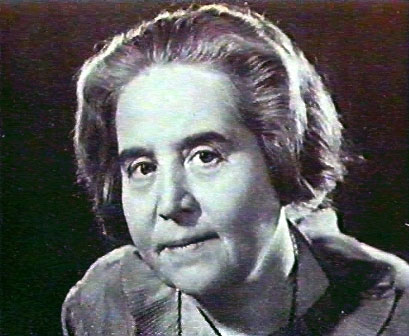
 O Almighty God, who by the Immaculate Conception of the Blessed Virgin Mary did prepare a worthy dwelling place for your Son, we humbly beseech you that as we contemplate the apparition of Our Lady in the Grotto of Lourdes, we may be blessed with health of mind and body. O most gracious Mother Mary, beloved Mother of Our Lord and Redeemer, look with favor upon us as you did that day on Bernadette and intercede with him for us that the favor we now so earnestly seek may be granted to us.
O Almighty God, who by the Immaculate Conception of the Blessed Virgin Mary did prepare a worthy dwelling place for your Son, we humbly beseech you that as we contemplate the apparition of Our Lady in the Grotto of Lourdes, we may be blessed with health of mind and body. O most gracious Mother Mary, beloved Mother of Our Lord and Redeemer, look with favor upon us as you did that day on Bernadette and intercede with him for us that the favor we now so earnestly seek may be granted to us.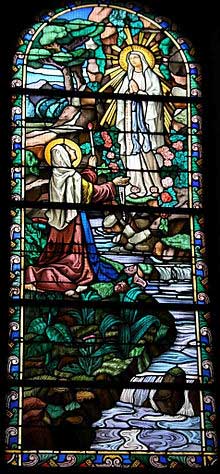 Novena to Our Lady of Lourdes – Day 6
Novena to Our Lady of Lourdes – Day 6
